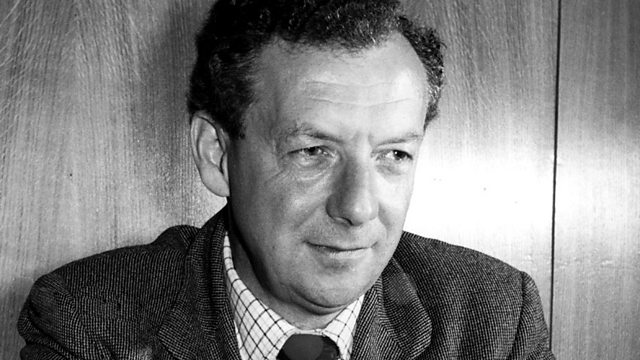
Britten, the Boy from Lowestoft
Donald Macleod focuses on Britten's early years. Including Variations on a theme of Frank Bridge (excerpts); Our Hunting Fathers; Lullay Jesu (A Boy Was Born, Op 3).
Britten, the boy from Lowestoft, becomes the enfant terrible of British music.
From relatively humdrum origins in the coastal fishing port of Lowestoft, Benjamin Britten rose to become the pre-eminent British composer of his day, celebrated not just in his native land, but internationally. Although he initially saw himself as an outsider to the British musical establishment, he would rapidly transform music-making in Britain, introducing new sounds, and insisting on the highest standards of performance. By the time of his death in 1976, in the arms of his long-term companion Peter Pears, Britten was celebrated as a composer of operas, string quartets and song cycles, and of a War Requiem that touched the hearts of millions of listeners around the world.
Born in Lowestoft on St Cecilia's Day (the patron saint of music) on November 22 1913, the son of a dentist and a doting mother, Britten soon demonstrated prodigious musical gifts. Composing from at least the age of six, Britten would often mine his early manuscripts for inspiration. As a boy, Britten managed to impress the composer Frank Bridge, who took him on as a pupil (and to whom he payed tribute in his Variations on a Theme by Frank Bridge). Later, Britten would enter the Royal College of Music, to be taught composition by John Ireland and piano by Arthur Benjamin.
At the age of 19 Britten delighted his dying father with the prospect of having one of his compositions played on the ����ý. 'Son, how does it feel?' asked his father.
By 1936, Britten had a number of published works to his name. Now employed to write film music for the innovative GPO film unit, he was introduced to the dazzling presence of poet WH Auden while working on films about postage stamps or coal trucks. Their collaborations for film were adventurous; even more daring was the song cycle they devised, reflecting man's relationship with the animal kingdom. With Our Hunting Fathers Britten truly felt that he had written his Opus 1. Unfortunately, the critics and the orchestra rather wished he hadn't bothered!
Last on
More episodes
Previous
You are at the first episode
Music Played
-
![]()
Benjamin Britten
Beware!
Singer: Philip Smith. Performer: Malcolm Martineau.- ONXY.
- 4071.
-
![]()
Benjamin Britten
Simple Symphony Op 4
Ensemble: Jean Walter Audoli Instrumental ensemble.- ARN.
- 68035.
-
![]()
Benjamin Britten
Variations on a Theme by Frank Bridge op 10
Director: William Boughton. Orchestra: English Symphony Orchestra.- Nimbus.
- NI 1751.
-
![]()
Benjamin Britten
A boy is born Lullay Jesu
Choir: London Sinfonietta. Choir: Choristers of St. Paul's Cathedral.- Virgin Classics.
- VC 90728-2.
-
![]()
Benjamin Britten
Our Hunting Fathers - Rats Away
Singer: Elisabeth Söderström. Orchestra: The English National Opera Orchestra. Conductor: Richard Armstrong.- EMI.
- CDM769522-2.
Broadcast
- Mon 18 Nov 2013 12:00����ý Radio 3
Beethoven Unleashed – the box set
What was really wrong with Beethoven?
Composers A to Z
Who knew? Five eye-opening stories from Composer of the Week
Five reasons why we love Parry's Jerusalem
What is the strange power of Jerusalem which makes strong men weep?
A man out of time – why Parry's music and ideas were at odds with his image...
The composer of Jerusalem was very far from the conservative figure his image suggests.
Composer Help Page
Find resources and contacts for composers from within the classical music industry.





